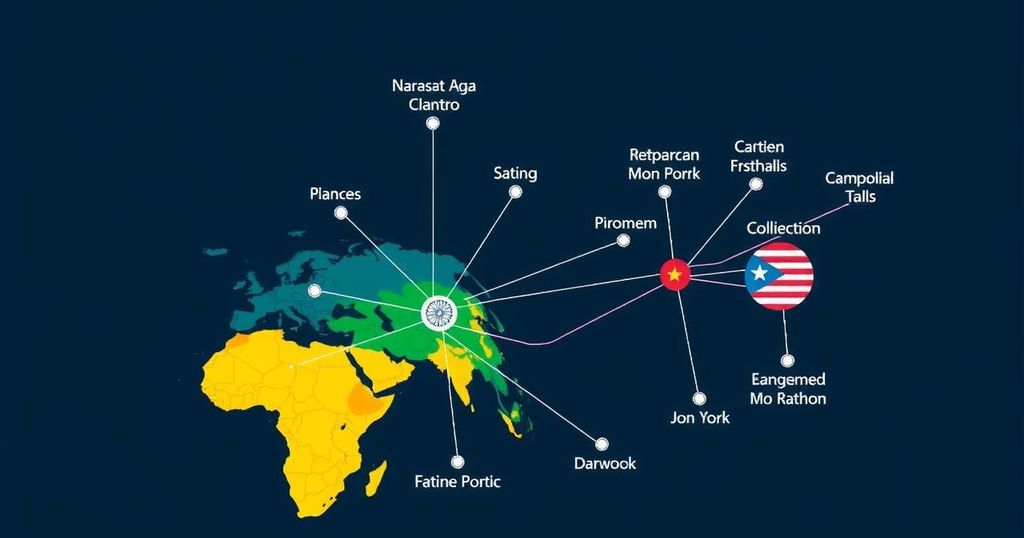Representatives from vulnerable nations are advocating at the ICJ for accountability from a few major countries responsible for climate change, emphasizing the disproportionate impact on Pacific island nations. The hearings, which involve 98 nations, seek to clarify legal obligations regarding climate action and highlight ongoing emissions despite warnings from scientists.
In a significant hearing at the International Court of Justice (ICJ) in The Hague, representatives from vulnerable nations, particularly from Pacific island countries, argued that a limited number of countries bear the primary responsibility for climate change. Ralph Regenvanu, Vanuatu’s special envoy for climate change, asserted that these states have generated the majority of greenhouse gas emissions while suffering the least from their consequences. As a result, vulnerable nations are left to deal with increasingly severe environmental hardships, such as rising sea levels and climate-related disasters.
This hearing marks the culmination of extensive advocacy by Pacific island law students and diplomatic efforts led by Vanuatu. The United Nations General Assembly had previously passed a resolution requesting the ICJ to clarify the obligations of states regarding climate change and the potential legal repercussions for neglecting these duties. Over the next two weeks, the ICJ will hear arguments from 98 nations, highlighting the disparity between industrialized nations with significant historical emissions and those like Bangladesh, Sudan, and Pacific island nations that have contributed minimally to climate change but face dire impacts.
Additionally, prominent emitters like the United States and China will present statements, despite their reluctance to fully acknowledge the court’s authority. Regenvanu pointed out that emissions continue to rise, having increased by over 50% since 1990, contradicting global scientific warnings. Testimonies from those directly affected by climate change will be submitted alongside written statements to the ICJ.
Legal representatives from the Melanesian Spearhead Group emphasized that climate change violates the right to self-determination for affected nations. They highlighted that the legacies of colonialism are interwoven with the injustices of climate change, as these nations confront ongoing challenges to their existence. Lead counsel Margaretha Wewerinke-Singh contended that certain states have violated international law by promoting fossil fuel extraction while neglecting their regulatory responsibilities.
The ICJ hearing included perspectives from youth leaders mobilized for climate action who expressed disappointment over the manipulation of climate agreements by fossil fuel interests. They called on the court to leverage its authority to rectify the situation and uphold international law in addressing climate change. This hearing could shape future international climate litigation and negotiations amidst a backdrop of concerted global efforts to manage the climate crisis.
The climate crisis is an escalating concern that disproportionately affects vulnerable nations, particularly those with minimal contributions to greenhouse gas emissions, such as Pacific island states. This disproportionate impact stems from their geographic characteristics and heightened exposure to climate-related disasters. The current legal push by these nations seeks accountability from the primary emitters of greenhouse gases, striving to establish a clearer framework of climate responsibility under international law. The ICJ proceedings are informed by previous advisory opinions from other international courts, adding to the dialogue on states’ legal obligations towards climate action.
The ongoing proceedings at the ICJ represent a pivotal moment in international climate law, underscoring the demand for accountability from historically significant greenhouse gas emitters. The testimonies from vulnerable nations highlight the urgent need for international legal frameworks to address climate change’s profound effects systematically. Regardless of the advisory nature of the ICJ’s forthcoming opinion, the case sets a precedent for future climate litigation and reinforces the interconnectedness of environmental and human rights issues.
Original Source: www.theguardian.com






